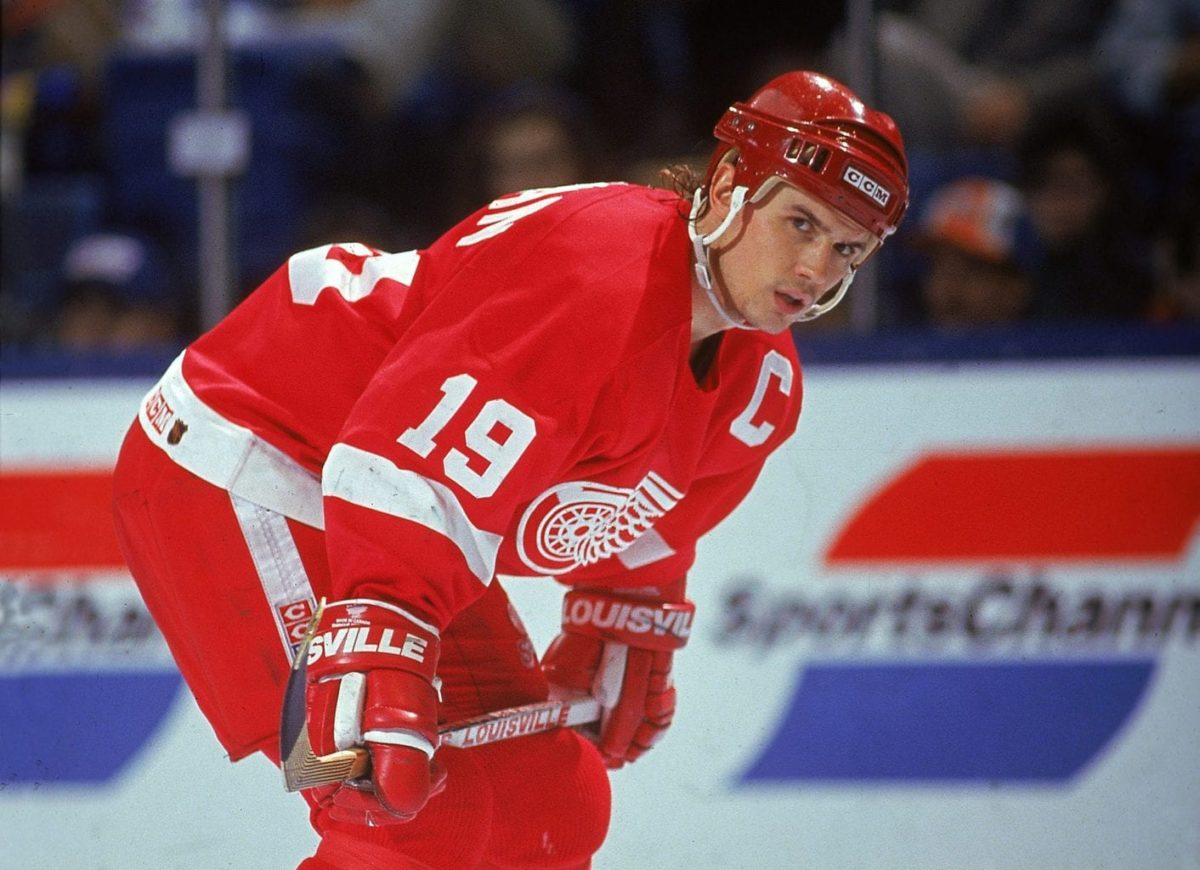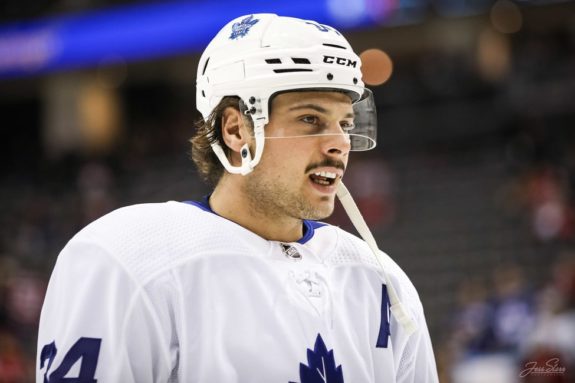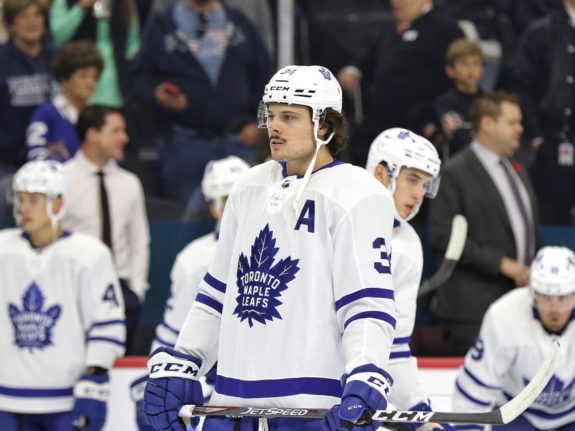It hasn’t been much more than a year since Auston Matthews was called out for unbecoming behaviour in Scottsdale, Arizona. Early in the morning in late May, an intoxicated group of young men – Matthews included – tried to enter the locked vehicle of a female security guard at Matthews’ condominium complex. Mathews was charged with disorderly conduct and disruptive behaviour – a misdemeanour charge that was later dismissed.
Related: Maple Leafs News & Rumors: Tavares Trade, Prospects, Muzzin & More
According to the Scottsdale Police Department, when the guard confronted the young men, Matthews – apparently trying to be funny – wanted to see how the guard would react so he dropped his pants and grabbed his buttocks (still wearing underwear).
The charges were dropped in November, but the damage was done. The incident might have cost Matthews a chance to be named captain of the Toronto Maple Leafs. Not only did his behaviour disappoint organizational expectations, but he also didn’t tell the Maple Leafs about the incident until reports emerged before his initial hearing in September.
To Matthews’ credit, he noted, “I made a mistake, and it’s been a lesson learned. I’ll try to put my best foot forward and just strive to be better in all aspects of my life.”
Matthews A Year Later
It’s now Aug. 17, eight days since the Maple Leafs left the bubble. I recently watched the postgame interviews after the team lost 3-0 to the Columbus Blue Jackets and noted the faces of the players, which said so much about how they felt. Matthews was in an especially glum mood.
As others were speaking, he looked especially introspective, which I have begun to equate with his growing “determination” to respond to what’s happening in his life and to his team. In speaking from my 51 years of experience as a teacher and university professor, I think Matthews has grown this season as a player and a person.
He is a deeply driven young man and he’s transforming from a young player with skills (dash and flash) to a leader, much like a young Steve Yzerman did many seasons ago. Recently, NHL.com columnist and historian Dave Stubbs said of Yzerman:
“Stevie Y is one of the greatest leaders in hockey history. He was a selfless centerman who under coach Scotty Bowman transformed himself from a great offensive talent into a tremendous two-way player,” (from “Yzerman finishes ahead of Sakic, Trottier for greatest player to wear No. 19,” The Detroit News, 06/21/20).

Yzerman is now the general manager of the Detroit Red Wings and when he held the same position with the Tampa Bay Lightning, he built them into a Presidents’ Trophy-winning team that challenged for the Stanley Cup season after season. As a player, he was inducted into the Hockey Hall of Fame in 2009. In NHL history, he ranks 10th in goals (692), ninth in assists (1,063) and seventh in points (1,755).
Is Matthews Undergoing a Transformation?
Such transformations, as we’re seeing in Matthews, have been tracked and theorized in educational psychology, and the theory of transformative learning notes that adults often experience deep learning as they undergo and respond to what is called “disorienting dilemmas” that challenge them. Furthermore, as part of their transformative learning, they change three aspects of their lives: (a) psychological (the way they think), (b) convictional (their willpower in choosing one path over another), and (c) behavioural (how they actually respond).
Related: Roger Neilson: Coaching Genius & Innovator
On Aug. 12, three days after the Maple Leafs’ loss, members of the team conducted their postseason media interview. Instead of being in the bubble, they were Zooming from their homes and offices. The mood was gloomy, as one would expect.
Again this season, expectations were high with weak results. For the fourth consecutive year, the team was knocked out early and failed to win a playoff series.
Maple Leafs president Brendan Shanahan, general manager Kyle Dubas, and Matthews spoke with the media about the team’s season and their plans going forward. Each person answered questions and shared thoughts about where they believed the organization had failed in 2019-20 and where it might be heading and how they planned to reach their goals.

When Matthews responded to questions, he spoke for a considerably long time. About the 2019-20 season, he admitted: “Having a good regular season really isn’t cutting it anymore. We’ve got to figure out the playoffs, figure out how to get out of this first round. Four years in a row is pretty frustrating and a little bit embarrassing as well.”
Related: Who is the NHL’s Top Goaltending Prospect?
He added, “Obviously, the results of the playoffs and what not (sic) haven’t shown. But with the players we have on this team and the core group that we have – being together for four years now – we really believe we are right there.”
About the team, he shared several thoughts. First: “The perception of how things are going or how the team’s been perceived outside the locker room may be a lot different than what we believe in.”
Then he added, “And I gotta be honest, we don’t really care what other people think, or how far away other people think we are, or the article they’re going to write about all the things that we need. I think we believe in our management and in our staff and in the players on this team and in this organization that we’re going to power through this adversity and we’re going to break through eventually.”
How to Make Sense of This
I was struck by Matthews this season for a number of reasons. Although I NHL salaries are over the top, accepting that these salaries are what they are and given the context, Matthews is earning his paycheck. This season, he separated himself from other players both in the NHL and on his team. He’s moved from being a really good hockey player to being a great one.
He deserves to be paid the most on the team because he’s by far their best player. He’s begun to play a two-way game and is growing more skilled and determined at both ends of the ice. His answers to the media are measured and straightforward. He doesn’t engage in hyperbole or drama. He’s neither paranoid nor reactive. That he was a nominee for the Lady Byng Award says something about how he’s seen around the NHL.

He’s also beginning to speak for “his” team and sharing on their behalf what his teammates must have discussed about the criticism levelled at the organization. His comments also give readers a sense that Matthews is speaking for a group of Maple Leafs players who are angry and embarrassed by themselves and by “outsiders” who, Matthews suggests, really don’t know the players inside the locker room.
It won’t be a bad thing if this group comes into next season with a chip on their collective shoulders.
Related: What Happens if the Maple Leafs’ Nick Robertson Is Really Good?
I could be wrong, and Matthews might remain a thoughtless young man who pulls his pants down just to see how someone reacts. But that’s not what I think after this season, which if you believe in transformational learning theory has been the “disorienting dilemma” that Matthews has used to move forward into a leadership role.
He said, “I made a mistake, and it’s been a lesson learned. I’ll try to put my best foot forward and just strive to be better in all aspects of my life.” I think this might be exactly what Maple Leafs fans are seeing. If so, watch out for what might be next.